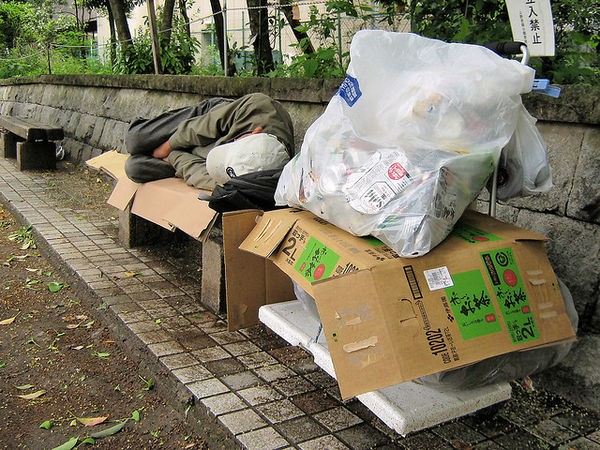Japan is known for its traditions, discipline, and respect for the elderly. However, amidst a society that values the collective and self-control, a painful phenomenon has gained prominence: kodokushi (孤独死), or "lonely death." This term describes the passing of individuals who spend their last moments alone, without family or friends noticing their absence. It is a growing social issue, especially among the elderly, but it also threatens other age groups.
This phenomenon symbolizes the social disconnection in a nation that is facing the rapid aging of its population and drastic changes in family ties. Despite government actions and community initiatives, kodokushi continues to expose the weaknesses of a country that, ironically, is also known for its devotion to collectivism.

Table of Content
The causes of Kodokushi: a modern dilemma
Kodokushi is the result of a combination of cultural, economic, and demographic factors.
1. Culture of "gaman"
"Gaman" (我慢) is a principle deeply rooted in Japanese society. It advocates for the stoic endurance of difficulties without showing weakness or seeking help. Many elderly people, especially, avoid bothering their relatives or neighbors, even in situations of extreme need. This attitude, though admirable, often contributes to social isolation.
2. Impacts of the economic bubble
In the 90s, Japan faced the collapse of the economic bubble, which resulted in high unemployment rates and early retirements. Many middle-aged workers struggled to reintegrate into the job market, and this financial instability made it difficult to maintain family or social relationships. Furthermore, the increase in the number of single or divorced people further complicated mutual support during critical times.
3. Demographic changes
Japan is one of the countries with the highest life expectancy, but also with one of the lowest birth rates. The aging population, combined with the decrease in the number of children, has resulted in households consisting of only one person, particularly in urban areas. Without family support networks, many elderly individuals become vulnerable to loneliness and solitary death.

Efforts to combat Kodokushi
Despite the seriousness of the problem, Japan has implemented measures to minimize kodokushi.
1. Community initiatives
Local organizations and NGOs have been promoting actions to check on the well-being of elderly people living alone. In some neighborhoods, postal workers and service delivery personnel are encouraged to report any signs of prolonged absence or neglect in the homes.
2. Technology as an ally
Monitoring systems for the elderly are becoming increasingly common. Sensors installed in homes monitor daily activities, alerting family members or authorities in case of prolonged inactivity. These technologies, while useful, still do not replace the warmth of human interactions.
3. Awareness campaigns
The government and private entities have invested in campaigns to stimulate the reconnection between generations and encourage people to ask for help when needed. However, these campaigns face the challenge of overcoming decades of cultural norms and social stigmas.
- Karoshi - Morte due to overwork in Japan
- Johatsu - People disappearing without a trace
- Understanding some of the suicides in Japan

An uncertain future
Although kodokushi is more common among the elderly, young Japanese people are also vulnerable, especially hikikomoris — individuals who live in seclusion for years. The tendency towards isolation, combined with the decline in the number of marriages and birth rates, suggests that kodokushi may become an even broader problem in the coming decades.
To combat this phenomenon, it will be necessary not only to rethink public policies but also to restore the importance of community and family ties. Small gestures, such as visiting an elderly neighbor or maintaining frequent contact with relatives, can make a huge difference.
What lessons can we learn from kodokushi? And how can we ensure that no one around us faces a lonely death? These are reflections that transcend cultural boundaries and should lead us to act with empathy and solidarity.
